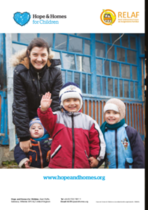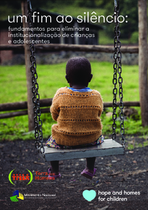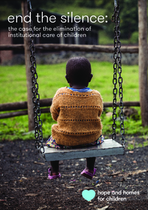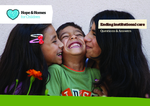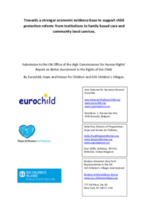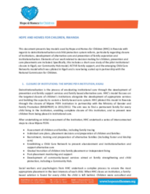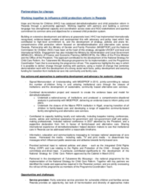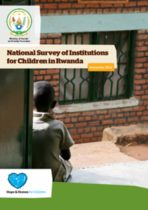Hope and Homes is a UK-based organization that works across Europe and Africa to support deinstitutionalisation and strengthen family-based care for children. Hope and Homes for Children is working alongside governments and civil society organisations in over 30 countries to dismantle orphanage-based care systems.
To contact, please fill out the contact form available here.
Where they operate
Headquarters Location
East Clyffe, Salisbury
Wiltshire
SP3 4LZ
United Kingdom
Organization Type
Main Areas of Work
What They Do
Hope and Homes is a UK-based organization that works across Europe and Africa to support deinstitutionalisation and strengthen family-based care for children. Hope and Homes for Children is working alongside governments and civil society organisations in over 30 countries to dismantle orphanage-based care systems.
Organization Resources
Décadas de investigaciones comprueban que el crecimiento de un niño en una institución posee un impacto nocivo en cuanto a lo psicológico, lo emocional y lo físico, incluyendo trastornos de vinculación, retrasos cognitivos y en el desarrollo, y una falta de capacidades sociales y para la vida que luego concluyen en múltiples desventajas durante la adultez.
Décadas de pesquisas comprovam que o crescimento em instituições de acolhida gera consequências psicológicas, emocionais e físicas, incluindo transtornos de apego, atrasos cognitivos e no desenvolvimento, e uma falta de habilidades sociais e de competências para a vida, trazendo diversas desvantagens na idade adulta.
This policy paper from Hope and Homes for Children calls on all the stakeholders that play a role in developing, running, supporting or influencing national care systems to join forces in a collaborative action to eradicate institutional care once and for all.
This publication includes common questions and answers on the implications of institutional care and why it should be ended.
This presentation was delivered at the Africa-Wide Children Without Appropriate Care Program Learning Event: “Shaping our care reform work across Africa,” held in Ethiopia on 20-23 April 2015. It provides an overview of the Tracking Progress Initiative, which includes the development of a tool to measure country progress in implementing the Guidelines for the Alternative Care of Children.
This document highlights some of the key learnings from the Ishema Mu Muryango program, a program designed to safely and sustainably reintegrate children living in institutions in two districts of Rwanda into their families or communities and prevent further institutionalization.
Eurochild contributed to the UN Office of the High Commissioner for Human Rights' report “Towards a better investment in the rights of the child” with a joint submission with Hope & Homes for Children and SOS Children’s Villages International.
This document presents key models used by Hope and Homes for Children (HHC) in Rwanda with regards to deinstitutionalisation and child protection system reform, particularly regarding closure of institutions, development of alternative care and prevention of family separation and institutionalisation.
A short brief by Hope and Homes for Children (HHC) in Rwanda explaining strategies used in the process of taking its deinstitutionalisation pilot project and research up to policy-level advocacy.
Hope and Homes for Children, in partnership with the Ministry of Gender and Family Promotion (MIGEPROF), has conducted a national survey of all institutions for children in Rwanda to obtain an accurate picture of the current institutional system and the children living within it which can be used to inform decision-making regarding the implementation of the reform strategy and provide a baseline against which progress can be measured in the future.


